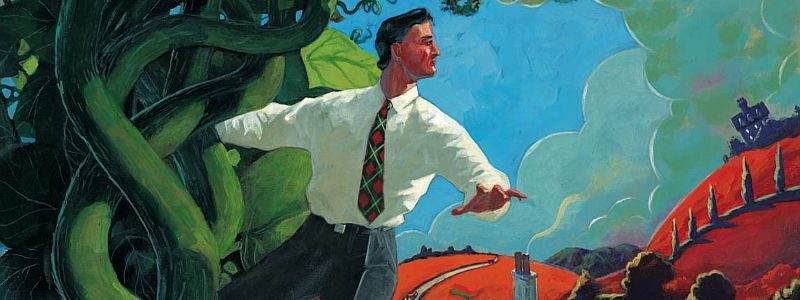Brandwidth 2004 – The Year In Review
The brand is dead! Long live the brand! Some would have it otherwise but last year was one where the brand played on.
In a world where style and substance slugged it out in the battle for popular support, the ability of public figures, services and products to successfully brand themselves and their messages remained crucial.
The tussle for the White House played out as a fairly straight choice between the man some would portray as a simpleton and the one who became known as ‘Flip-flop’. Bush, whose fiery brand of politics often defied belief in liberal circles at home and abroad succeeded where Kerry patently failed. He shrewdly presented his cause as a biblical battle between good and evil, and talked about himself with powerful reference to what he was not. He became the not-Al Quaeda, the not-Osama Bin Laden and the not-Saddam Hussein, whilst Kerry hummed and hawed and failed even to present himself as the not-George W.
Meanwhile, global giant Macdonalds, whose sharp practices came under increasing fire – Supersize me… why don’t you? – went on a salad-fuelled charm offensive. Whether this newly flavoured dressing will disguise the bad taste left by what has been served up before remains to be seen.
At a time when business-owners often strive to be as politically correct and inoffensive as possible (the bland leading the bland?), Irish brands Ryanair, Paddy Power and O’Brien’s Sandwich Bars offered a reminder that a little attitude (OK then, in some cases a lot of attitude) and a willingness to ruffle feathers goes a long, long way.
Here at home, Bewley’s proved that style rarely wins out over substance in the long term. The much-loved brand followed the Metropole and Pillar (not to mention the Royal long since pulled down), giving way to the grey, unyielding concrete truths which continue to make a city of this town. Whilst a number of home grown coffee house brands continue to show the way across the rest of the country, Bewley’s slavish adherence to a tired and irrelevant formula and its failure to build on the huge affection it enjoyed amongst natives and visitors alike must go down as one of the great missed opportunities of the year.
Across the river, another venerable brand continued to tie itself up in knots. The Abbey Theatre lurched from one crisis to another although with industry veterans remarking that it has been ever so, even in the halcyon days of Willie and Maud Gonne, perhaps this eternal wrangling remains part of the national theatre’s enduring brand character?
Meanwhile, a brand that has been a pioneer for much of my lifetime (and one particularly close to my own heart), stumbled closer and closer to its competitors and blurred many of the lines that had once marked it out as the indisputable leader in its field. Superquinn continued its slide of previous years and meekly surrendered its ownership of fresh food and customer-friendliness in the mind of the Irish customer. It foolishly invited price comparisons that simply didnÕt bear scrutiny – and this to an audience that had happily paid more for freshness and service even in the dark days of the seventies and eighties.
A first Triple Crown in over twenty years and a number of pilfered rather than moral victories showed that the Irish Rugby team is seriously tackling its own brand values. Dismissed as plucky but fragile by the big five for well over a century, Eddie O’Sullivan’s Ireland has added patience and steely intent to its armoury and stands on the brink of some sustained achievement for the first time ever. The openly ambitious Paul O’Connell typifies this new version of the brand, big-hearted but with purpose and talent to match.
On the cultural front, Bloomsday proved that branding the date on which a fictional character took a dander through some of the most celebrated pages in literature could translate into significant tourist revenues (not to mention selling even more copies of the book that we love to own but rarely brave past the first few pages). Denny’s jumped on its own sausage-link to Leopold Bloom and had 10,000 of us saying, “I will, yes, yes I will” to breakfast on O’Connell Street.
Internationally, the brand story of the year was arguably the iPod. The arrival of the must-have and must-be-seen-with accessory of the year prompted the perennial question for Apple: Can a brand, which has blazed trails through the last thirty years of personal technology, finally capitalise on its own innovations?
As Fast Company’s Carleen Hawn noted, Apple’s products are “easier to use, often more powerful and always more elegant than those of its rivals. Yet those rivals have followed its creative leads and snatched for themselves the profits and scale that continually elude Apple’s grasp”.
Finally, the year ended with a soft dusting of snow on the city and Guinness returning to its roots. A brand that had lost its way over the previous two decades finally showed signs of returning to its traditional strengths and was rewarded with its first domestic growth in almost twenty years.
The brand is dead? Long live the brand!


